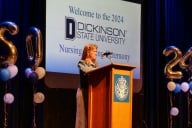You have /5 articles left.
Sign up for a free account or log in.
Several study abroad providers said they planned to continue their programming in Cuba after the U.S. Department of State issued a warning on Friday advising American citizens against travel to the country and ordered the departure of nonemergency diplomatic staff.
The warning states that U.S. embassy personnel in Havana have been subject to “specific attacks” that have resulted in “significant injuries,” with physical symptoms ranging from “ear complaints and hearing loss, dizziness, headache, fatigue, cognitive issues, and difficulty sleeping.” The warning notes that the governments of Cuba and the U.S. have not identified the “responsible party” for the reported attacks, the nature of which is not clear. News reports indicate they may have involved the use of a sonic or electromagnetic weapon, or poisoning.
“Because our personnel's safety is at risk, and we are unable to identify the source of the attacks, we believe U.S. citizens may also be at risk and warn them not to travel to Cuba,” the State Department travel warning states. “Attacks have occurred in U.S. diplomatic residences and hotels frequented by U.S. citizens. On September 29, the Department ordered the departure of nonemergency U.S. government employees and their family members to protect the safety of our personnel.”
At least some study abroad providers and universities with programs in Cuba indicated they judged the risk to students to be low.
The Institute for Study Abroad-Butler University said in a statement on its website Friday that its “students are at very low risk as the attacks have only targeted U.S. Embassy personnel. IFSA-Butler will continue operating [at] the Universidad de Habana for the fall semester as planned.” The study abroad provider said it had confirmed with its on-site director “that our students do not frequent the locations of the attacks (U.S. Embassy and nearby hotels) as they live with host families and are very involved with their Cuban university and society. Students are being made aware of the travel warning and are being urged to avoid the U.S. Embassy, nearby hotels, and well-known hangouts where Americans congregate.”
Another study abroad provider, CIEE, published a statement on its website to similar effect. “At this time, CIEE does not believe our students to be in any immediate danger or risk of future attacks. Our students are all safely embedded in homestays and will be advised to avoid hotels. There are no reports of issues on campus and we believe our students are safe there. We are closely monitoring the situation, are in continual communication with our intelligence providers, and will let you know if we have any reasons for concern.”
Kendall Brostuen, the director of international programs and an associate dean at Brown University, which runs a program in Cuba, the Consortium for Advanced Studies Abroad (CASA) that is enrolling 23 students this fall. Brostuen via email that “normal operations will continue, with appropriate precautions.
“Unlike most individual travelers/tourists traveling to Cuba, CASA-Cuba students reside with carefully selected host families, not in hotels, and have a full team of experienced support staff, backed by an especially committed Cuban partner organization to address matters of students’ health and safety. Added to this is our enlistment of 24/7 emergency travel assistance coverage, which covers all students, and whose precautions we’ll continue to adhere to. Both general student welfare and emergency situations over the years have been very effectively handled through these channels,” Brostuen said.
Several other entities that offer study abroad programs in Cuba did not respond to Inside Higher Ed's inquiries regarding plans for those programs over the weekend.








